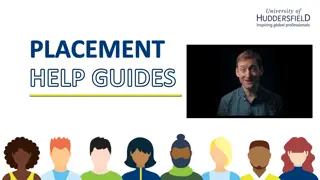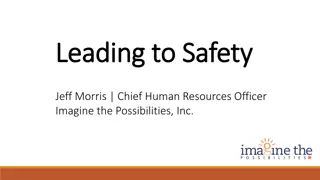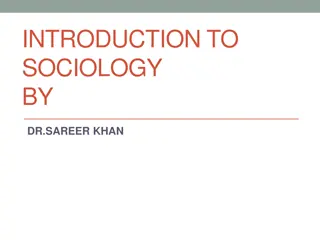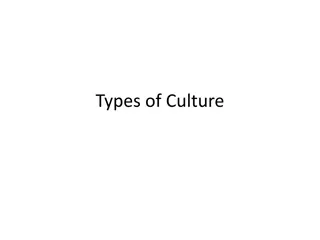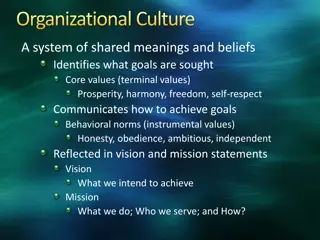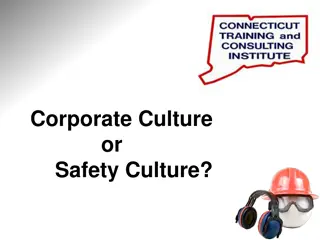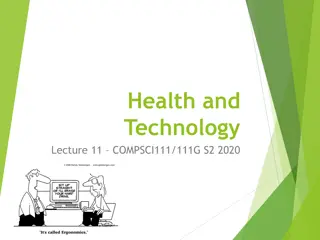Understanding Narcissism in Today's Culture
Narcissism is a personality disorder characterized by an inflated sense of self-importance, excessive need for attention, lack of empathy, and manipulation tactics. This article explores the traits and behaviors of narcissists, from their self-centered nature to their tendency to bully others and lie for personal gain. It sheds light on how narcissism manifests in both online and real-life interactions, emphasizing the importance of recognizing and dealing with manipulative narcissists.
Download Presentation

Please find below an Image/Link to download the presentation.
The content on the website is provided AS IS for your information and personal use only. It may not be sold, licensed, or shared on other websites without obtaining consent from the author. Download presentation by click this link. If you encounter any issues during the download, it is possible that the publisher has removed the file from their server.
E N D
Presentation Transcript
Are We a Culture of Friendly Narcissists? Pat Love, EdD, LMFT WWW.patlove.com
What are we talking about Narcissism: One of several types of personality disorders A mental condition in which people have an inflated sense of their own importance A deep need for excessive attention and admiration Lack of empathy for others
Garden-variety narcissism Is oblivious to fairness Thinks, talks about self most of the time Craves attention Demands admiration Exaggerates talents and achievements Believes in own uniqueness Wide, fast mood swings Difficulty understanding or considering others
Extremely self-righteous and judgmental Prone to bully others Often believe the victim deserves the treatment or brought it on themselves Never take responsibility for actions that hurt others
Narcissists are also prone to lying Because if it benefits them In their perception, it is true!
For narcissists, whether online or in real life It s all about micromanaging and controlling others To their advantage
Manipulative narcissists Are covert aggressors They use subtle tactics to charm, disarm, and take advantage of you They also enjoy pitting people against one another
Narcissists will claim righteous indignation But it is actually jealousy and envy at the root Narcissists don t often exist in a peaceful state
Contrary to popular belief It s not the person showing the selfie, sharing good news, or posting about their fun life. It s the bully in the comment section degrading others.
Those who enjoy trolling Have high levels of narcissism Trolls have the cognitive empathy to assess the hurt they inflict They don t have the affective empathy to care that others hurt. Therefore, they do not have compassion.
30 year study of narcissism and empathy NPI-Narcissistic Personality Disorder Correlates with real-world behavior Overrate their own ability Lash out angrily to slightest criticism More likely than average to bully Less likely to volunteer to help others
NPD Does not react well to criticism or critique Troubled relationships throughout life Goal to be more powerful, successful, desirable Manipulates others to gain success Jealousy is pervasive Obsessed with themselves Cannot set realistic goals Constant hunger for attention, admiration Easily hurt or feel rejected
Narcissism is marked by a sense of entitlement a sense of superiority a willingness to exploit impulsiveness a lack of empathy retaliatory aggression when the inflated ego is threatened
Narcissistic Injury Any threat (real or imagined) to the narcissist's grandiose self-perception Or anything less than the special treatment he or she believes is deserved. Even a slight disagreement can be perceived as a humiliation or rejection. The narcissist is constantly on the lookout for slights; is hypervigilant.
The self as world viewas an infant Infants don t give thought to the convenience of others. Are programmed to think only of their needs and wants. Are not programmed to think of the needs of others.
Why are we talking about this? 70% of college students Score higher on narcissism and lower on empathy than did the average student 30 years ago.
Causes for rising scores? More honest? Researchers don t think so. Other assessment with robust lie scales also show increase in narcissism and decline in empathy. Increased pressure to achieve and achieve where beating others is required. Misguided self-esteem movement
Carte blanche esteem The current definition of self-esteem used by educators and psychologists seems to be Feeling good about oneself regardless of social attributes.
What caused this rise in narcissism? Far less social pressure to demonstrate character than in past generations. Children who once would have been disciplined for spoiled behavior are now allowed to dictate the dinner menu, or veto a family move.
When Success Leads to FailureThe Atlantic Are children sacrificing natural curiosity and love of learning at the altar of achievement? Are we training our kids to measure progress by means of points, scores, and awards versus learning? (And we don t care how they achieve them.) Are we sending the message that intellect and achievement are more important than character? Are we teaching them to fear failure? Fear of failure destroys the joy of learning!!
Probable causes Excessive praise fostering an unrealistic view of self Overindulgence and spoiling with the expectation of continuance from others Failing to impose adequate discipline which prepares one for maturity and adulthood Idealization of the child which sets unrealistic expectations
Free play versus play dates In free play children learn to control their own lives, solve their own problems and deal effectively with fear and anger thereby protecting themselves from anxiety and depression. Learn how to win and lose! Free play expands options and creativity Free play overcomes narcissism, builds capacity for empathy.
In free play you can quit All kids have a biological drive to play with other children To keep fun going each child is motivated to keep the others happy They must learn to listen to one another, understand one another. If a child fails at understanding others, they will quit and the child won t be able to play.
Free play teaches Empathy Negotiation Cooperation Impulse control Emotional regulation
By depriving children of opportunities to play on their own away from adult supervision and control We are depriving them of opportunities to learn how to take control of their own lives
We may think we are protecting them, but we are diminishing their joy. preventing them from developing self- control preventing them from discovering what they most love to do and increasing the odds they will suffer from anxiety, depression, and other disorders.
Children in free play Are rarely effusive in praise for one another Have little tolerance for special treatment or demands They are highly skilled at deflating an exaggerated ego
Children who engage in free play Demonstrate more empathy More ability to take other s perspective When play is added, these abilities increase and children get along better with others.
Probable causes of narcissism The combination of indulgence and coldness may be a potent brew for cultivating narcissistic personality disorder.
Merriam-Webster indulge To give free rein to To yield to the desire of To treat with excessive leniency To pamper, humor, spoil Implies excessive compliance and weakness
Subgroups of the family Executive -------------------------------------------------------------- Parental ------------------------------------------------------------- Sibling
The roots of narcissism Placing momentary emotional needs over the feelings and wishes of others Failure to play by accepted rules of the game Selfish behavior which defies logic
Self esteem Psychoanalytic theory: narcissists actually have low self-esteem and that their narcissism is just a cover. New research: narcissism actually correlates quite positively with positive self image. Deep down inside, narcissists think they re awesome! You cannot cure narcissism with greater self image.
School of hard knocks ( Psychology of Victimhood, 2003). Psychotherapy sees many normal life events as trauma rather than as character building experiences. This has political consequences. Individuals are freed from moral responsibility for what they do or what happened to them and therefore are no longer citizens, but patients or victims
Most charming person in the room. Narcissists tend to be quite charming initially, but once you get into the relationship you realize your attempts to do something other than what the narcissist wants are foiled.
Imperative clinical note! Narcissism thrives when people allow themselves to be scape-goated for the narcissist s bad behavior. It is a condition that appears in relationship and not in isolation. It takes more than one person for this pattern of behavior to continue.
Therapy goals: what you change is how people deal with NPDs, not the narcissist.
The cheating narcissist research More likely to cheat on their partners Not very susceptible to guilt Tend to get a thrill from keeping their others guessing Like to feel in control of their relationships Simply feel entitled to things they want
Heterosexual women are attracted to male narcissists because they seem powerful, special, and self-confident. Heterosexual men are attracted to female narcissists who are strikingly beautiful or sexually appealing. It's only when narcissists begin to ignore their partner's concerns and dismiss what their partner says that narcissism becomes a source of relationship tensions.
What to do Do not take it personally. If someone you know talks with minimal listening, first and foremost do not take it personally. Dismissing what you say as wrong or irrelevant says more about that person than it does about you or what you have said. Repeat what you said. Just as you would repeat, perhaps more loudly, what you were trying to say to a hearing impaired person, find ways to repeat, tactfully, the message that you were trying to communicate.
Treatment in a nutshell Respect Reality check Regulation of emotions
Your best therapeutic tool: The truth You can continue to believe in your own entitlement But you will not be happy!
Earn it to own it Entitlement is the feeling that we deserve something, whatever it may be, regardless of what we may or may not have done to earn it. People s lives become more meaningful when they have constructive goals that make a difference for others.
Compassion requires us To grow up To step out of self-as-context To have clear boundaries To be curious about others experience To imagine yourself as the other To understand others enough to determine their needs
Daniel Goleman A reparative relationship can be very beneficial in personality disordered individuals. True self esteem includes a deep-down self acceptance which includes one s flaws.




